Is Taiwanese society ready to face a belligerent China?
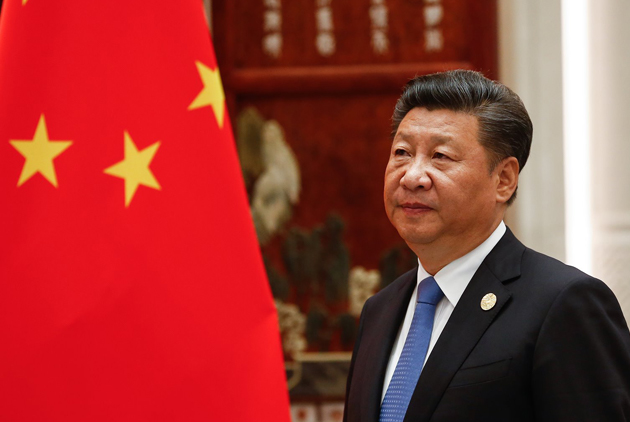
Source:Shutterstock
China's willingness to safeguard "national interests" and fulfill the "historical mission of the great rejuvenation of the Chinese nation" is increasing day by day. Is Taiwanese society ready to face a belligerent China?
Views
Is Taiwanese society ready to face a belligerent China?
By Gunter Schubertweb only
Over the last decade, the world has seen a geopolitical shift whereby China has gained power and influence in the international arena, showing an increasing willingness to safeguard “national interests” and fulfil the “historic mission of rejuvenating the Great Chinese Nation”. Within this, unification with Taiwan has long been defined as a major objective, the pursuit of which has become increasingly urgent. Chinese fighter and surveillance aircraft often fly across the dividing line of the Taiwan Strait and repeatedly breach Taiwan’s Air Defence Zone. At the same time, recent naval operations close to Taiwan’s coast speak to an apparent Chinese belligerence nurtured by China’s increasing political self-confidence and, it seems, readiness to take military risks.
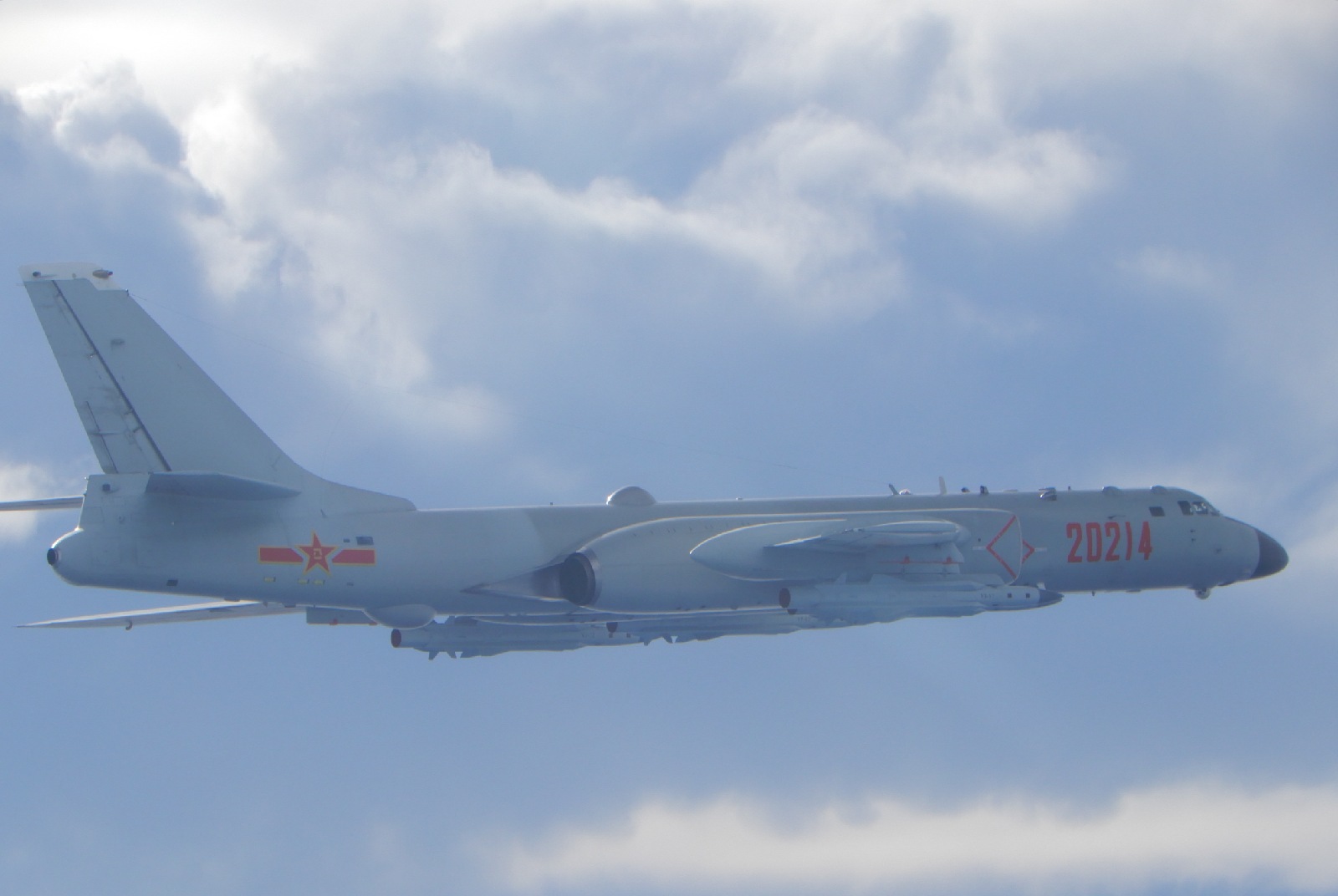 (Source: Ministry of National Defense)
(Source: Ministry of National Defense)
Some observers have openly stated what many others are thinking: Taiwan may become the trigger of a large-scale war between the US and China. The Economist cast a mess of noise across the global echo chamber recently by calling this tiny spot in the Asia-Pacific region “the most dangerous place on earth”, suggesting that this is where a military showdown between the world’s two superpowers is likely to take place.
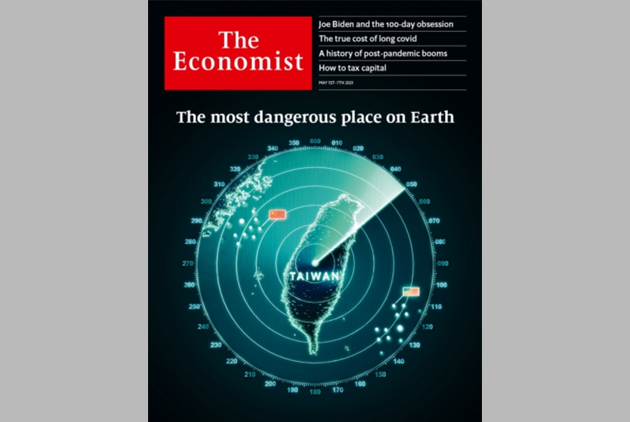 (Source: The Economist)
(Source: The Economist)
What is Taiwan’s response – or, more interestingly, how has its vibrant, though politically polarised, society responded so far?
Put differently: Is Taiwanese society ready to face a belligerent China?
Raising this question makes many people in Taiwan uneasy – whether they are policy-makers, scholars, taxi drivers or the mothers of primary school children.
Those warning that Taiwan is not prepared to respond properly to a serious “China threat” point to what they describe as observable indifference within the Taiwanese society. This indifference is interpreted as stemming from two mindsets: Either ordinary Taiwanese think that a conflict will not happen; or they think that conflict is coming no matter what they might do to stop it.
What I have heard time and again, with only small variations, are comments like this: “We sit in restaurants and coffee shops, we enjoy life, and we do not want others to remind us of the danger that threatens all this fun. In the end – what can we do?” Others told me that the Taiwanese are confident in US military support, but are fatalistic when it comes to the question of forging a political consensus to jointly stand up to China.
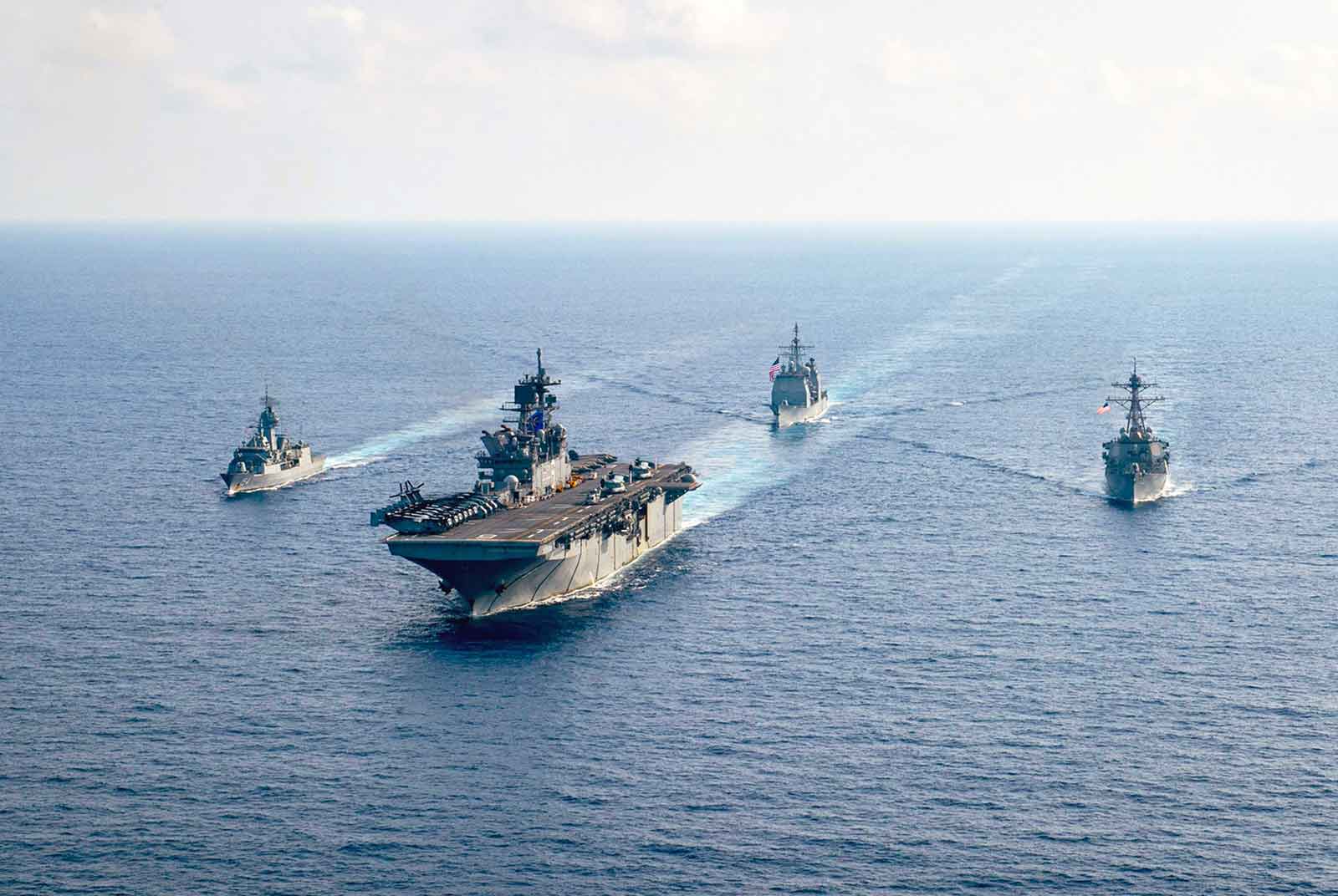 On April 18th, three US Navy warships and Australian Navy frigate cruised in the South China Sea. (Source: United States Department of Defense's website)
On April 18th, three US Navy warships and Australian Navy frigate cruised in the South China Sea. (Source: United States Department of Defense's website)
Taiwanese society, as I was told repeatedly, is split in terms of national identity by the long-time confrontation between the “blue” and “green” party camp ideologies, depriving the Taiwan people of the social glue needed to stand up to China as a united force. The Taiwanese would rather stick their heads in the ground and try to ignore the predicament. They prefer indifference, fatalism and, if or when the real China threat emerges, they would sooner opt for quickly making peace with China and accepting a “one country, two systems” solution of some sort, than risk their children’s lives in a war that cannot be won anyway.
Others contest such assessments by reasoning that Taiwan’s democratic society has just become used to the “China threat” but would, in reality, respond with all necessary determination if it came to a military showdown. After all, where’s the sense in getting nervous too early?
Taiwan’s outspoken Minister of Foreign Affairs, for his part, felt compelled to tell the international media in early April, amid growing concern over China’s intrusions into Taiwanese airspace and territorial waters, that Taiwan would defend itself “to the very last day” if it were attacked by China. That said, he was more likely referring to the fighting spirit of the country’s military forces than society as a whole. How long would that fighting spirit last if it were not in some way connected to a parallel readiness to fight back on the part of the Taiwan people?
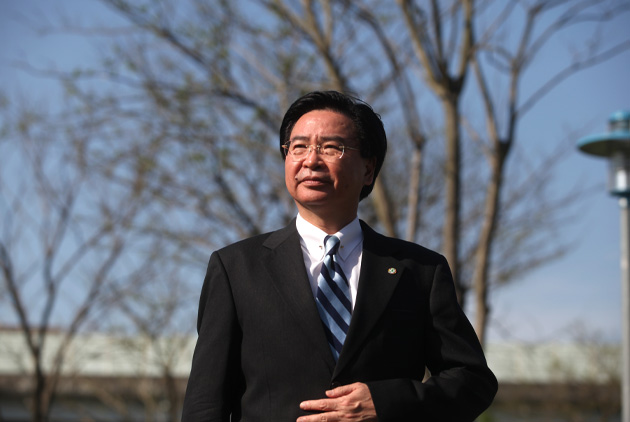 Taiwan’s Minister of Foreign Affairs, Jaushieh Joseph Wu. (Source: CommonWealth Magazine)
Taiwan’s Minister of Foreign Affairs, Jaushieh Joseph Wu. (Source: CommonWealth Magazine)
According to data collected by Academia Sinica’s Institute of Sociology in April and May, more than 77 percent of the Taiwanese surveyed would be ready to go to war against China, if necessary. These figures suggest at least some sense of determination. At the same time, some two thirds believe the US would help Taiwan if such a war were to break out. Unfortunately, the survey did not cover what the Taiwanese would do if they could not count on that support.
A Taiwan scholar recently told me that asking whether Taiwanese society is ready for a war with China is something of a taboo topic in Taiwan. Nobody wants to ponder this question seriously. In fact, emotional connotations aside, the question itself is difficult to answer. What does it mean to be ready and what are the preconditions for getting ready? Further questions arise here: Does Taiwan need to build up a civil corps that would back up its military forces if and when war breaks out? Would Israel serve as a meaningful example, with its huge reserve army and military training that covers most of the adult population at regular intervals?
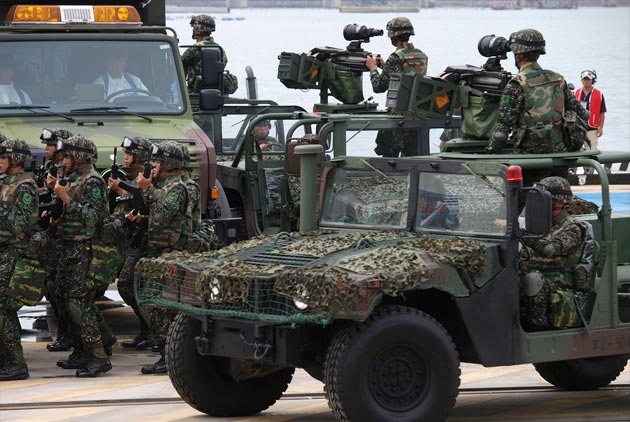 (Source: Shutterstock)
(Source: Shutterstock)
Certainly, this issue has gained more attention within recent political debate in Taiwan, but it is highly controversial because of the underlying implications involved in militarizing a democratic, peace-loving society. The Israeli case is interesting as it shares with Taiwan the experience of an existential threat to its statehood which coincided with the birth of the nation – like the ROC emerging as a refugee state in Taiwan in 1949. However, after decades of more or less stable relations across the Taiwan Strait, it seems unlikely that the Taiwanese people can be steered into the state of permanent crisis which would be necessary to legitimize any effort towards institutionalizing military training for every Taiwanese household.
Then there is the issue of national identity. Why would the people of Taiwan rally around the ROC flag against an attacking China, when one part of the people considers that flag little more than a protective mimicry for a sovereign Taiwanese republic, while the other sees it as a link to Taiwan’s Chinese past that should not be severed, be it for tactical reasons or deeply felt emotions? Against this background, would Taiwan’s political parties, particularly the ruling DPP and its major opponent, the KMT, be able to find common ground to respond firmly to China if war looms across the Taiwan Strait? Or will they, even in times of heightened military tensions, continue to blame each other for destroying Taiwan’s democracy and prosperity with irresponsible China policy? On China, the DPP and the KMT still stand far apart from one another – at least in public. Would that change if rising tensions across the Taiwan Strait bring about the spectre of war?
Hawks in the US like to point to this lack of consensus among the Taiwanese to back up a general argument of “giving up” Taiwan in order to prevent a damaging conflict between the US and China and waste American lives and resources for an island so close to the Chinese mainland. Taiwan would certainly not be the only factor in Washington’s equation on a military confrontation with Beijing. But defending a people that does not even really want to be defended, or would enjoy a free ride on US military engagement, is a dangerous narrative for Taiwan.
So the question remains: Is Taiwanese society ready to fight a belligerent China – or does it, ultimately, prefer to sit on borrowed time, enjoy life as much as possible, and dig in to avoid looking at the existential threat that it is facing and cannot escape?
Should you be interested in submitting op-eds, please email to [email protected]
About the author:

Gunter Schubert is Chair of Greater China Studies and Director of the European Research Center on Contemporary Taiwan (ERCCT) at Tübingen University, Germany.
Have you read?
♦ Are Chinese and US Maneuvers in the Asia-Pacific a Precursor to War?
♦ Taiwan Strait: Time for a ‘Cold Peace’ or a ‘Hot War’?
♦ Pratas Island Tensions: Could This Be War?
Uploaded by Penny Chiang






